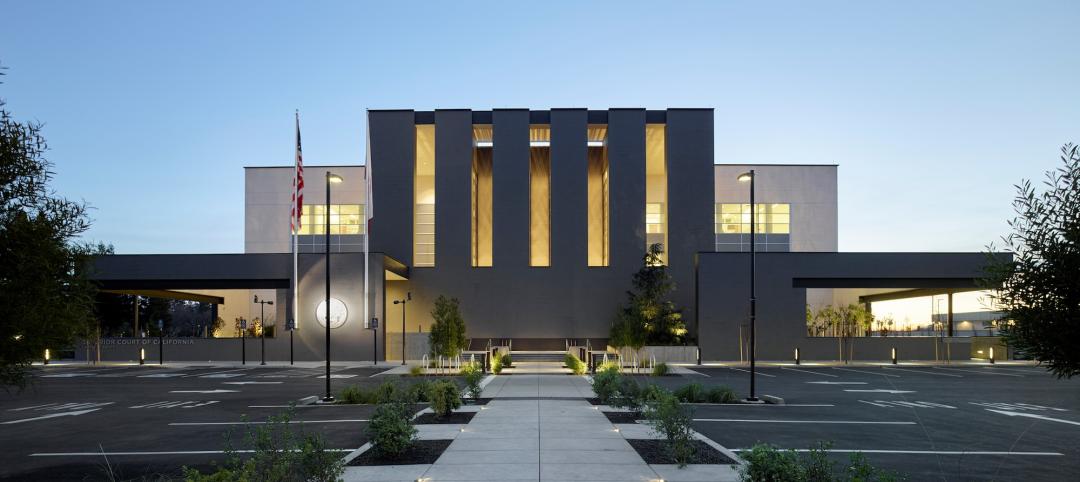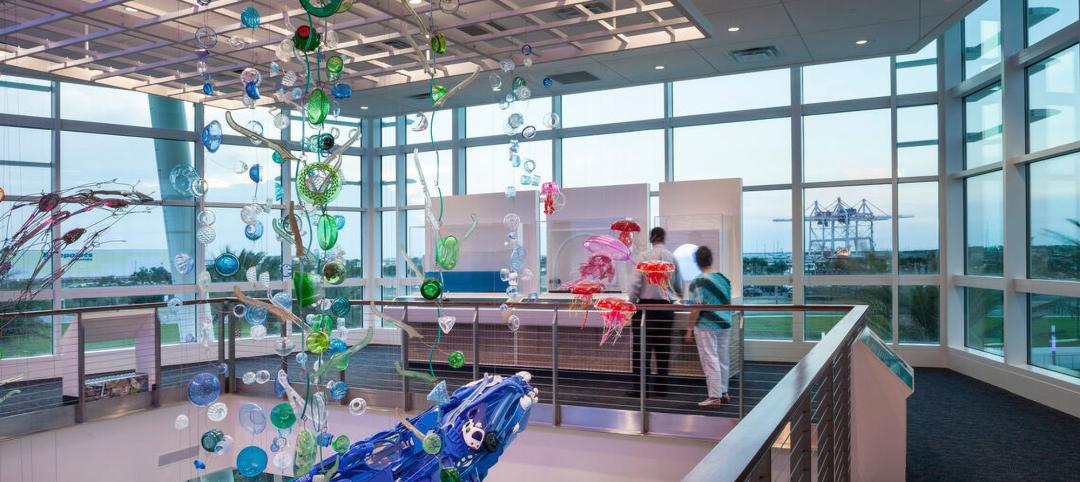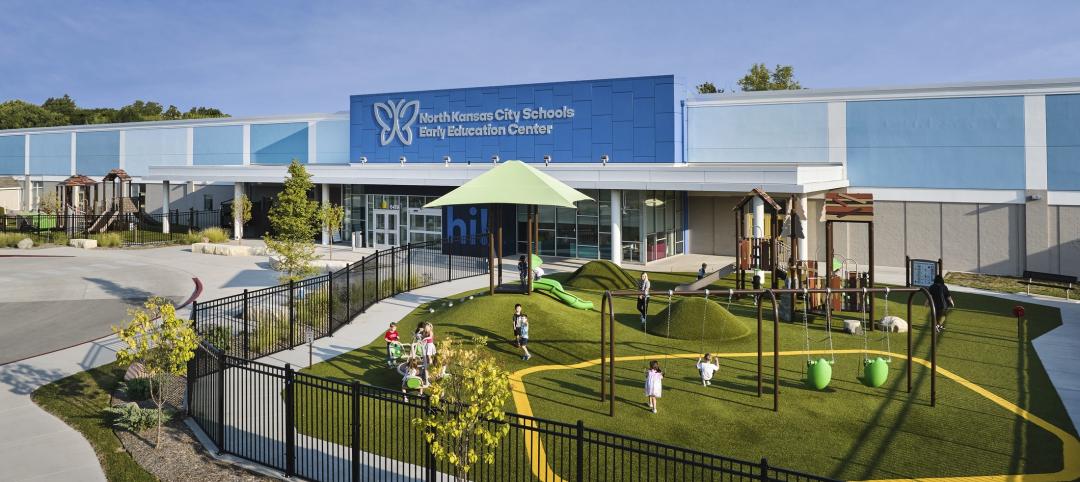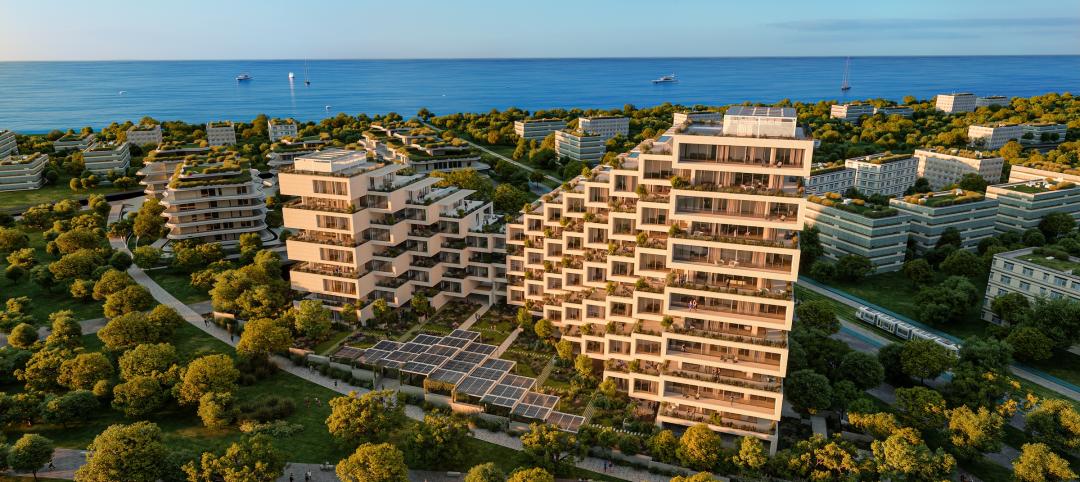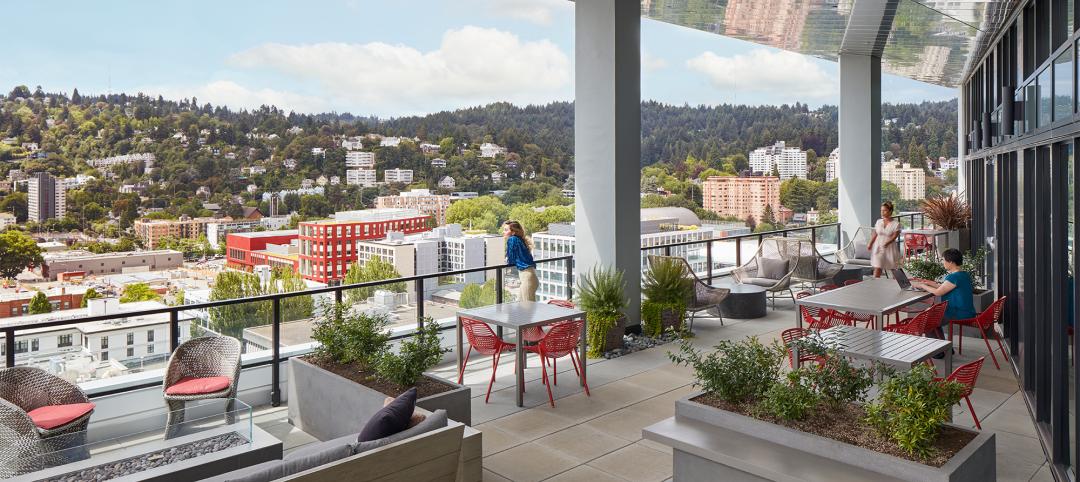The Green Building Initiative (GBI) today announced that, according to a recent study completed by Drexel University professor Jeffrey Beard, GBI’s Green Globes certification process is significantly less expensive to conduct and faster to complete than LEED certification, according to GBI president Jerry Yudelson.
“Green Globe certification currently gives the market a choice among certification systems and provides competition that helps improve results for users, resulting in more innovation and lower costs over time,” Yudelson said. “In this particular project, the cost savings to the University were on the order of $1.00 per square foot, a significant number for a large building.”
The final report, prepared by Beard, an associate professor in the ?Department of Construction Management at Drexel’s College of Engineering, is titled “A Study of Comparative Sustainability Certification Costs/Green Rating System Cost Comparison Study: LEED and Green Globes.” Beard’s research examined:
- Intrinsic hard costs – allocable on a line-by-line basis – for meeting criteria in each of the rating systems;
- Soft costs, whether accounted for as part of the indirect project costs or secondary soft costs that arose as a result of the project, but were otherwise allocated or absorbed; and
- Optional costs arising from implementation of the two green building rating systems.
The research was confined to the Papadakis Integrated Sciences Building at Drexel’s West Philadelphia campus, a five-story, 130,000-square-foot laboratory and classroom building that opened in 2011.
A key variance in the two rating systems that was revealed by the study was the cost of using each for the Papadakis building. The breakdown summarized in the university’s records indicates internal (staff time) costs at Drexel for administering both systems were more than $125,000 for LEED versus $9,000 for Green Globes. The report’s summary shows aggregate green building costs (i.e., hard cost premium, soft costs and optional costs for sustainability rating) nearly 15 percent higher for LEED than for Green Globes. The table below illustrates cost differences between LEED and Green Globes in several key areas of design, management and assessment.
Funding for the study came from the Green Building Initiative. However, Professor Beard conducted the research without any oversight from GBI, using timesheets and other records of administrative costs maintained by the project team and Drexel University.
The Papadakis Building received three Green Globes from GBI and a LEED Gold rating from the US Green Building Council. The architects were Toronto, Canada-based Diamond Schmitt Architects and H2L2 of Philadelphia. Turner Construction Company provided construction services.
About the Green Building Initiative™ - The GBI is a nonprofit organization and American National Standards Institute (ANSI) Standards Developer dedicated to accelerating the adoption of green building practices. Founded in 2004, the organization is the sole U.S. provider of the Green Globes® and federal Guiding Principles Compliance building certification programs. To learn more about opportunities to become involved in the GBI, contact Jerry Yudelson, President,(jerry@thegbi.org), visit the GBI website,www.thegbi.org, or send an email to GBI's Marketing Director Shaina Sullivan (shaina@thegbi.org)
Related Stories
Architects | Jan 10, 2024
Award-winning civic design firm RossDrulisCusenbery joins DLR Group
DLR Group today announced the acquisition of Sonoma, California based civic and public safety design firm RossDrulisCusenbery (RDC). The addition of RDC adds focused design excellence of new building types to DLR Group’s global Justice+Civic studio.
Museums | Jan 8, 2024
Achieving an ideal visitor experience with the ADROIT approach
Alan Reed, FAIA, LEED AP, shares his strategy for crafting logical, significant visitor experiences: The ADROIT approach.
Designers | Jan 8, 2024
DLR Group adds executive leaders
DLR Group Chief Executive Officer Steven McKay, AIA, RIBA, announced new executive leaders for the 100% employee-owned, globally integrated design firm.
AEC Tech | Jan 8, 2024
What's driving the surge of digital transformation in AEC today?
For centuries, the AEC industry has clung to traditional methods and legacy processes—seated patterns that have bred resistance to change. This has made the adoption of new technologies a slow and hesitant process.
K-12 Schools | Jan 8, 2024
Video: Learn how DLR Group converted two big-box stores into an early education center
Learn how the North Kansas City (Mo.) School District and DLR Group adapted two big-box stores into a 115,000-sf early education center offering services for children with special needs.
Green | Jan 8, 2024
DOE releases RFI on developing national definition for a Zero Emissions Building
The Department of Energy released a Request for Information (RFI) for feedback from industry, academia, research laboratories, government agencies, and other stakeholders on a draft national definition for a Zero Emissions Building.
Codes and Standards | Jan 8, 2024
Australia to be first country to ban engineered stone countertops
In 2024, Australia will be the first country to ban engineered stone countertops. The ban came after a years-long campaign supported by doctors, trade unions, and workers over concerns that the material was causing increased silicosis cases among workers cutting and handling it.
Roofing | Jan 8, 2024
Researchers devise adaptive roof tile concept that adjusts to ambient temperatures
Scientists at the University of California Santa Barbara published a paper that proposes adaptive roof tile technology that can adjust to ambient temperatures. Using a wax motor, tiles could switch from a heating or cooling state enabling savings on heating and cooling costs.
MFPRO+ News | Jan 4, 2024
Bjarke Ingels's curved residential high-rise will anchor a massive urban regeneration project in Greece
In Athens, Greece, Lamda Development has launched Little Athens, the newest residential neighborhood at the Ellinikon, a multiuse development billed as a smart city. Bjarke Ingels Group's 50-meter Park Rise building will serve as Little Athens’ centerpiece.
MFPRO+ Special Reports | Jan 4, 2024
Top 10 trends in multifamily rental housing
Demographic and economic shifts, along with work and lifestyle changes, have made apartment living preferable for a wider range of buyers and renters. These top 10 trends in multifamily housing come from BD+C's 2023 Multifamily Annual Report.



